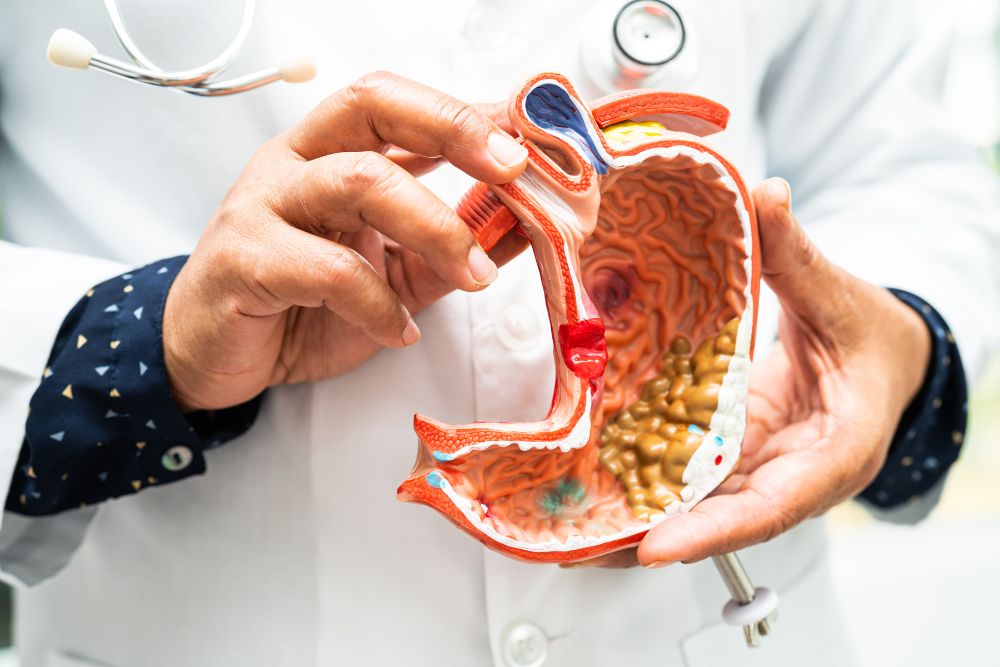Gastrointestinal Surgeries

Gastrointestinal surgeries address issues in the stomach, small intestine, and other parts of the digestive system. These procedures are often performed to treat conditions such as cancer, ulcers, obesity, and chronic diseases.
Gastrectomy involves the removal of part or all of the stomach. A total gastrectomy is the complete removal of the stomach, while a partial gastrectomy involves removing only a portion. This surgery is often necessary for stomach cancer or severe peptic ulcers.
Gastric Bypass Surgery is a weight-loss procedure where a small stomach pouch is created and connected directly to the small intestine, bypassing most of the stomach and the upper part of the small intestine. This reduces the amount of food a person can eat and how much can be absorbed.
Gastric Sleeve (Sleeve Gastrectomy) involves removing a large portion of the stomach to create a narrow sleeve-like structure. This reduces stomach size and helps with weight loss by limiting food intake.
Fundoplication is a surgery for gastroesophageal reflux disease (GERD) where the top of the stomach is wrapped around the lower esophagus to prevent acid reflux.
Pyloromyotomy is performed to treat pyloric stenosis, a condition where the pylorus (the opening from the stomach into the small intestine) is narrowed, blocking food from passing through.
Gastrostomy involves creating an opening in the abdominal wall to place a feeding tube directly into the stomach, often used for patients who cannot eat by mouth.
Small Bowel Resection involves removing a segment of the small intestine, often due to conditions like Crohn’s disease or bowel obstruction.
Adhesiolysis is the removal of adhesions (scar tissue) that can form in the abdominal cavity and cause pain or bowel obstructions.
Bowel Resection includes procedures to remove sections of the small or large intestine, depending on the underlying condition, such as Crohn’s disease or cancer.
These surgeries are tailored to address specific gastrointestinal conditions, aiming to relieve symptoms, improve function, and enhance quality of life. Recovery times and outcomes vary based on the complexity of the surgery and the patient’s overall health.


